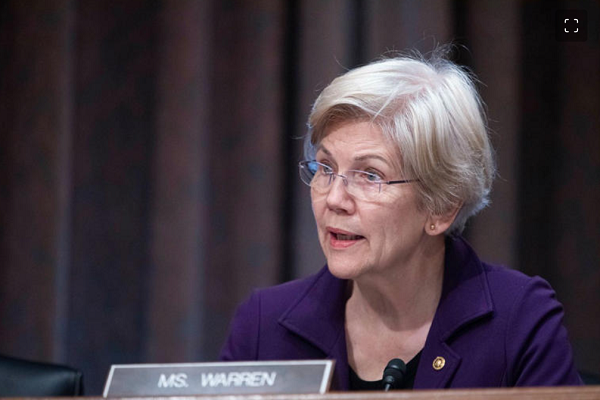Elizabeth Warren Has an ObamaCare Epiphany
Opinion by The Editorial Board
Published November 24, 2023
 It took 13 years, but Elizabeth Warren is at long last acknowledging that ObamaCare has increased healthcare prices and industry consolidation. Who would have believed it? Government price controls and profit caps have resulted in unintended consequences.
It took 13 years, but Elizabeth Warren is at long last acknowledging that ObamaCare has increased healthcare prices and industry consolidation. Who would have believed it? Government price controls and profit caps have resulted in unintended consequences.
The Massachusetts Senator and Republican Sen. Mike Braun of Indiana this week wrote a letter to the Health and Human Services Department inspector general complaining that the nation’s largest health insurers are dodging ObamaCare’s medical loss ratio (MLR). The result, they say, is higher costs for patients.
The MLR is a de facto cap on profits. It requires that insurers spend at least 80% or 85% of premium dollars on medical claims. Democrats claimed the rule would make health spending more transparent and reduce insurer spending on overhead. “Consumers will receive more value for their premium dollar,” the Obama HHS said.
Instead, as we’ve been pointing out for years, the rule has spurred insurers to merge with or acquire pharmacy benefit managers (PBMs), retail and specialty pharmacies, and healthcare providers. This has made healthcare spending less transparent since insurers can shift profits to their affiliates by increasing reimbursements.
The Senators cite a Journal news story in September that found insurers were paying affiliated specialty pharmacies more than 20 times for generic drugs what manufacturers charged. Patients can get slammed by hefty out-of-pocket cost for these drugs if they have high deductibles or co-insurance requirements.
“Even worse,” the Senators write, “insurers can use their PBMs to steer patients to their own pharmacies, while disadvantaging competing pharmacies with lower reimbursements and predatory fees.” In a 2017 editorial we highlighted complaints that CVS’s PBM was paying independent pharmacies less than the wholesale drug cost while billing Medicaid for significantly more.
The Senators complain that insurers have evaded the MLR by vertically integrating with other companies in the healthcare supply chain. “Cigna, United Health, and CVS Aetna each own or are affiliated with the country’s three largest PBMs,” they write. Insurers are also increasingly buying providers. CVS this year acquired primary care provider Oak Street Health.
[READ FULL ARTICLE HERE]
